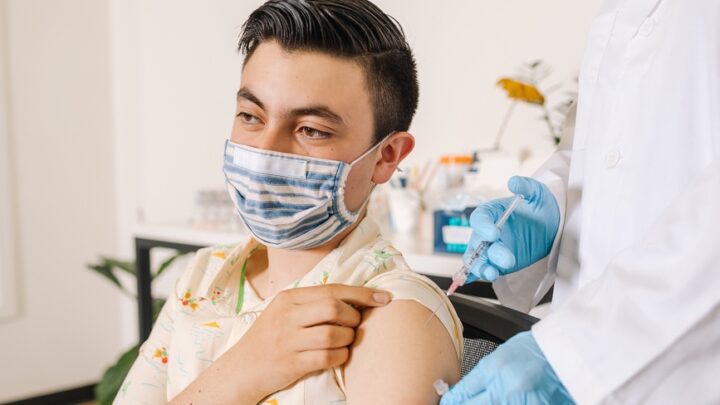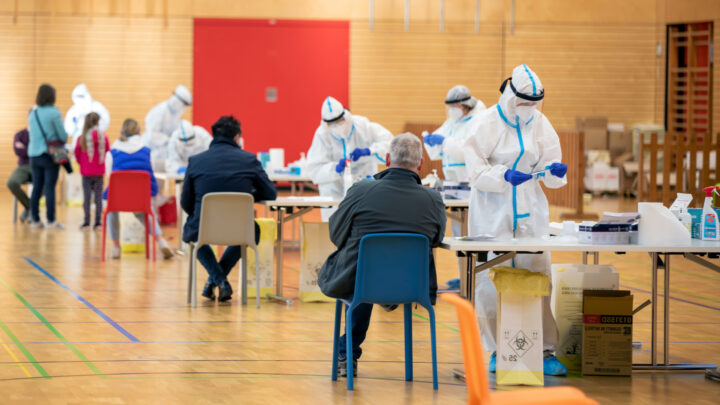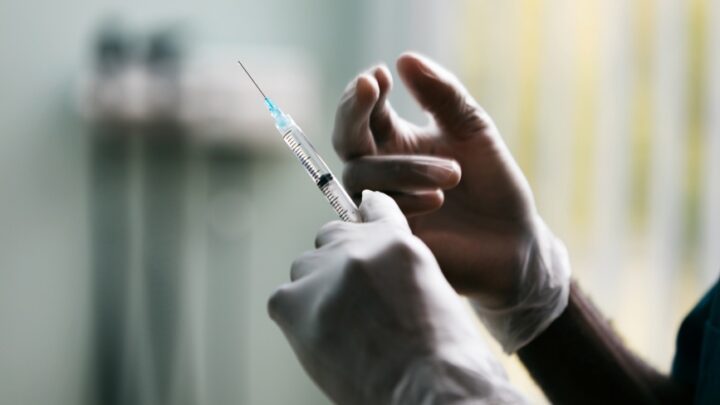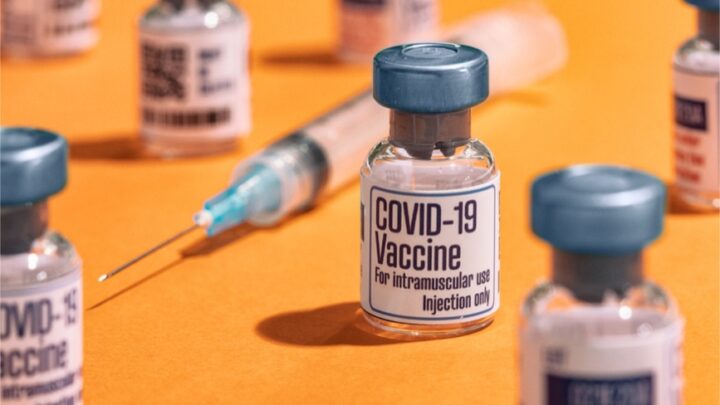
The U.S. Secretary of Health, Robert F. Kennedy (RFK) Jr. reignited a longstanding debate: that doctors push vaccines because of profiteering. His remarks have appeared everywhere—from Senate confirmation hearings to fact-checks in The New York Times and BBC News. But how accurate is this claim?
To cut through the noise, we asked physicians on Sermo, the world’s largest online physician community, what vaccine delivery really looks like in everyday practice.
RFK Jr. claims that the current vaccine system creates financial incentives for physicians to administer more vaccines. However, across specialties and countries, the truth is resounding: vaccines are a public good, not a profit center.
“It’s very sad that lies are being told that may cause more preventable deaths in the future. Vaccines don’t help make a profit — they help save lives.” one family medicine physician on Sermo stated.
Most doctors on Sermo don’t profit
Our small-sample Sermo poll shows that nearly half of physicians (47%) strongly agree that vaccine purchases are a major financial liability for practices. Another 25% agree. That means nearly three-quarters of frontline physicians see vaccines not as a moneymaker, but as a budget burden.
Why? Stocking, storing, and administering vaccines is expensive. One GP on Sermo said, “I can’t afford to stock vaccines. I send patients to the pharmacy.” Many practices can’t afford the overhead and instead end up sending patients to local pharmacies for vaccination. According to Sermo responses:
- 24% said they send patients all the time.
- 31% said sometimes.
- 12% occasionally
- 15% rarely
- 17% never
That’s more than half of doctors outsourcing vaccines to pharmacies just to stay financially solvent.
“Too expensive to keep in stock. Ridiculous!” expressed an internal Medicine physician on the matter. Another family medicine physician added their frustrations, saying, “I lost $1500 on flu vaccines last year… We rarely get a record updated.”
RFK Jr.’s suggestion that vaccines represent an income stream doesn’t hold up against real-world practices. Instead, they often mean lost revenue, operational headaches, and liability.
What’s really behind vaccine payments?
When physicians do get reimbursed for vaccines, the numbers are underwhelming. Only 5% of doctors in our Sermo poll said they receive a “huge bonus.” 21% mention a modest reimbursement, while the vast majority (73%) describe payments as minimal or nonexistent.
Behind the scenes, vaccine administration also requires:
- Staff time: Hiring or dedicating nurses for vaccine clinics. As a pediatrician on Sermo expressed, “$30/hour for 35 hours a week for a nurse just to give vaccines. We lose money.”
- Paperwork: Insurance claims, prior authorizations, and reporting.
- Liability: Managing cold storage, spoilage, and compliance rules.
Even The New York Times confirms that vaccine reimbursements rarely cover costs and sometimes fall below the purchase price. And STAT News reports that RFK Jr.’s reading of vaccine research is often misleading or outright incorrect.
The bottom line? Most doctors don’t even break even.
Misinformation’s real danger: patient trust and vaccine hesitancy
The financial myth may sting, but physicians agree the greater harm is erosion of patient trust. In our Sermo poll, 90% of doctors said they are “concerned” or “very concerned” that misinformation like RFK Jr.’s claim could increase vaccine hesitancy.
Global vaccine coverage has stalled, intensifying the vaccination challenge due to COVID-19, political debate, social media misinformation, and more unvaccinated children. In 2024, 14.3 million children globally missed all vaccines, an increase from pre-pandemic levels.
Even members of RFK Jr.’s own family, including U.S. ambassador Caroline Kennedy, describe his vaccine positions as “dangerous”. When patients believe doctors are financially incentivized to “push” vaccines, it casts doubt not just on vaccines but on medicine as a whole.
“This is strictly an American issue… It reflects the phenomenal immaturity of a people who put conspiracy theorists at the top.” opines a general practice physician in France.
Physicians on Sermo are clear: misinformation undermines years of progress in public health and according to one psychiatrist, “All we can do is continue to educate patients and promote truth.”
Below is a simple checklist you can use for addressing vaccine hesitancy with your patients:
- Provide clear, evidence-based explanations in simple language, grounded in facts rather than feelings.
- Share real-world outcomes from your clinical practice. Highlight the consequences of preventable diseases and real-life success stories from your experience.
- Point to credible resources (such as the CDC, WHO, or specialty societies). Direct patients to credible sources like government health websites, professional organizations, and patient education platforms. Emphasize their peer-reviewed nature and higher credibility than sources like social media.
- Emphasize community protection of vulnerable populations. Remind patients that vaccination helps protect vulnerable groups such as children, the elderly, or immunocompromised individuals.
- Offer ongoing dialogue—leave the door open. Instead of forcing patients to make an immediate, impassioned decision, continue the conversation across subsequent visits if needed.
For more tools on addressing these conversations, see our guide on physician strategies for handling health misinformation.
The reality for pediatricians and small practices
Pediatricians, who administer the majority of childhood vaccines, often bear the brunt of these divisive political and social media misinformation. Specialties across the board can see the unique challenge that pediatricians face, with one internal medicine doctor on Sermo stating, “Pediatricians are the lowest compensated”.
According to our small sample Sermo poll:
- 75% agree or strongly agree that vaccine payments make up only a small share of clinic reimbursements.
- Nearly half (49%) strongly agree that physicians must overcome obstacles just to provide vaccines.
Additionally, 53% of Sermo members say that both non-compliance and nonadherence are already big concerns in their practice, compounding poor outcomes and doctor frustration.
For smaller practices, vaccine delivery slides from difficult to nearly impossible. Refrigeration units, spoilage risks, and up-front purchase costs make it unfeasible to stock vaccines. Add in political misinformation claims, and small practice physicians have their work cut out for them. That’s why many community physicians outsource to pharmacies—even if it fragments care.
Why RFK Jr.’s narrative doesn’t match reality
Multiple media outlets—including BBC News and NPR—have shown how RFK Jr. misinterprets or misuses science. His most recent remarks about vaccine dangers and profits follow the same pattern: appealing to political pundits, but often citing studies that have either been redacted or are not applicable at the population level.
His assertion, made during a 2023 Fox News interview, that “autism comes from vaccines,” is a significant false claim. This theory gained traction through the efforts of Andrew Wakefield, a discredited UK doctor whose 1998 study was subsequently retracted by The Lancet medical journal. Numerous studies conducted worldwide have consistently found no connection between vaccines and autism.
RFK Jr. went on the record saying, “a series of studies” show that “to particular antigens blacks have a much stronger reaction.” Dr. Richard Kennedy — a vaccine researcher at the Mayo Clinic who’s not related to RFK Jr. — says it’s true the immune response to vaccination can vary by race, sex, and “potentially dozens of other factors.” But suggesting that African Americans should have different schedules would be “twisting the data far beyond what they actually demonstrate,” he says. Dr. Carlos del Rio, a professor of medicine at Emory University, agrees, saying such a conclusion is “taking it to a very unsafe place,” in part because vaccination rates are already lower among African American children.
And as The New York Times fact-check emphasized, vaccine reimbursements are “a drop in the bucket” compared to overall clinic revenues.
Physician opinion as reflected on Sermo echoes this. For survey respondents, vaccines are:
- A public good, not a revenue driver.
- A logistical headache, not a profit center.
- A trust-building opportunity, when misinformation doesn’t get in the way.
“Vaccines aren’t a moneymaker. They’re a public good. And attacking those who deliver them helps no one.” summarizes one family medicine physician.
Key takeaway
According to the World Health Organization, over half of the world’s population still lacks access to essential health services. Claims made by healthcare government leaders, like RFK Jr., directly impact policy and access to care, especially for those with lower socioeconomic status. It’s evident that his claims don’t match the reality experienced by most practicing physicians.
Physicians on Sermo overwhelmingly reject the notion that vaccines are a major profit driver. Instead, they describe vaccine delivery as a financial burden and a source of public misunderstanding
Sermo poll results and member insights paint a clear picture:
- Vaccines are more often a financial liability than a profit source.
- Reimbursements are modest, minimal, or nonexistent.
- Pediatricians and small practices struggle most.
- The real danger is misinformation fueling hesitancy and eroding patient trust.
The real danger isn’t in physician incentives — it’s in the misinformation that undermines their work. Add your voice to the debate around how vaccines really fit into your practice. Join the Sermo community to connect with peers, trade real-world experiences and strategies, and join the fight against misinformation.















